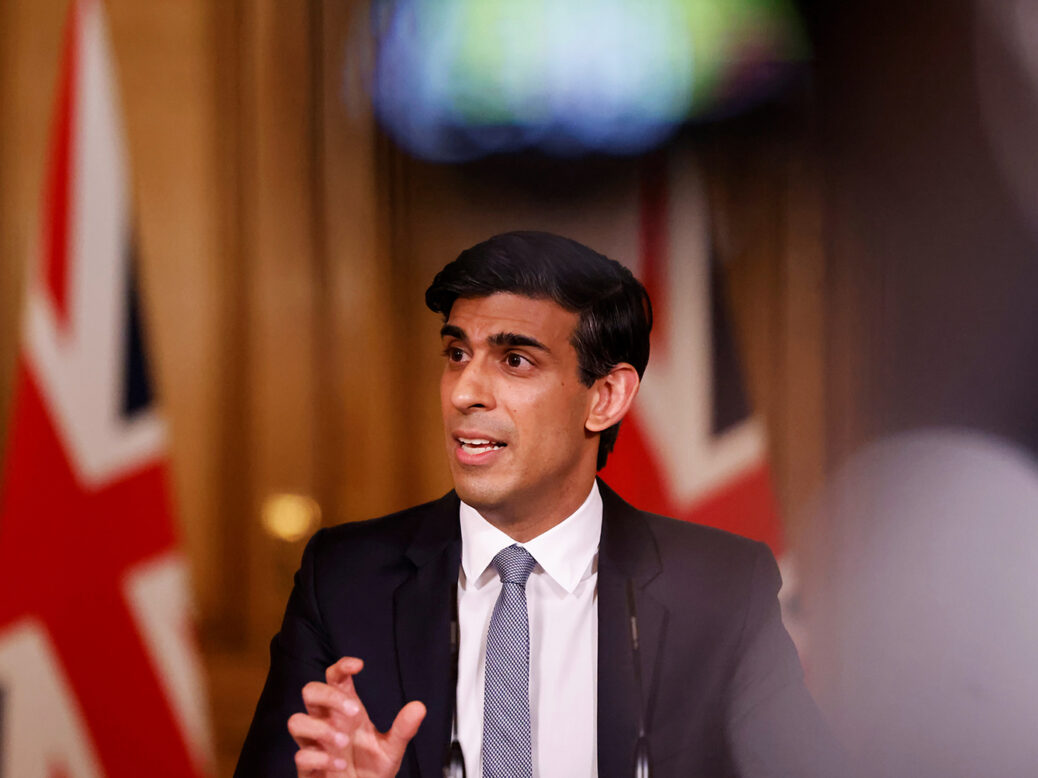
In his “Party Political Speech” broadcast from 1958, the comedian Peter Sellers mimics the vapid vocabulary of a politician who has space to fill but nothing to say. As the police begin their investigation into the parties held across Whitehall during the coronavirus lockdowns, I suspect that every Tory MP will be “more than sensible of the exact definition of the precise issues which are at this very moment concerning us all”. Should a vacancy arise at the top of the party, the Chancellor Rishi Sunak will be asked the question Sellers poses of who he really is and what he has to say.
The first thing to note about a putative Sunak premiership, however, is that, given the state we are in, it would be welcome. Boris Johnson’s time in office has proceeded through embarrassment to shame. Every further day he spends in Downing Street only adds to the reputation of his party for shameless self-regard. Sunak would surely bring better officials, advisers and ministers into government. He would restore a sense of order and propriety. He would do that as an urgent matter of contrast with his predecessor but also because he is a decent man. Even for those of us with a different political disposition, it would be salutary to have a prime minister of whom we did not have to feel ashamed.
[See also: Boris Johnson is entering his moment of greatest peril]
Let’s not forget too that Sunak would be the first UK prime minister of Indian descent; it would be a compliment to Britain if he became its chief minister, and it would be quite a moment. It wouldn’t wash away the existence of racism – the Cabinet Office is now conducting an inquiry into claims made by the former minister Nusrat Ghani – but it would be a step in which even those of us who do not share Sunak’s politics should take some pride.
The question of his politics is more of a mystery than it sounds, however, because there is an air of the Sellers character about Sunak. Who is he, politically speaking, and what would a Sunak government look and feel like? To the majority of the public, Sunak is the person who preserved their jobs with the furlough scheme. He is the saviour who hands out money, the biggest spender in the history of the Treasury.
Yet Sunak tells friends that he is, when left to his own devices, a fiscal conservative. The ending of the aid spending commitment, his private opposition to investing in levelling-up projects and the social care plan, and his slightly desperate move to brand the rise in National Insurance as “the Prime Minister’s tax” are all attempts by the Chancellor to flaunt his market credentials to his party.
Yet politics is as much about character as it is about belief, and, on the scanty evidence available, Sunak seems to be a politician who changes his beliefs to fit the situation he finds himself in. Everywhere he has been a man whose chief trait was a willingness to conform to whichever orthodoxy prevailed at the time. He is one of life’s head boys: likeable, safe, reliable but a touch bland; technically impressive without ever being truly outstanding because standing out is not in his nature. He says whatever the others say, only better. Wherever he goes, Sunak is the man with the most polished boilerplate in town.
After attending Winchester College and Oxford University, Sunak went on to intone received market wisdoms at Goldman Sachs. Then he went on to learn the catechism of the modern religion in Silicon Valley, with an MBA at Stanford University. Sunak returned to the UK to find that the values of Tory politics were changing and so he became a dutiful advocate of Brexit. Then this self-proclaimed fiscal conservative became the symbol and organiser of state largesse as Chancellor. The writer Salman Rushdie once called this process “chutnification”, by which he meant that some substances take on the shape of the receptacle that holds them.
This protean quality might be ascribed to inexperience. We all take a while to find ourselves and Sunak is a politician of the accelerated age. Margaret Thatcher was an MP for 20 years before she became prime minister. John Major’s apprenticeship in parliament was 11 years, Tony Blair’s was 14 and Gordon Brown’s 24. David Cameron spent nine years as an MP and Theresa May served for nearly two decades before she entered 10 Downing Street. Johnson himself had been an MP for 11 years, in two spells. Sunak is barely into his seventh year.
It might not be so surprising if he remains a little unformed and, besides, being elusive can be an advantage. My guess is that a Sunak government would be similar to a Cameron government. Austerity will be less severe, but the fiscal profligacy of Johnson would be replaced by greater providence. Calm process would be restored to government and the childish fights over statues and broadcasting output would stop. But beyond that, who knows? Probably not Sunak himself.
This recent partygate episode of Johnson’s premiership is teaching us, once again, that politics always lays bare who you are. In his career so far, Rishi Sunak has responded superbly to the conditions that have been presented, but he has been less inclined to define them himself. If he becomes leader, he will have to set the terms rather than simply comply with them.
At the end of his speech, Sellers’ character says, “Now, finally my friends, in conclusion, let me say just this…” There follows a long silence. Sellers himself was so addicted to putting on faces that he forgot who he actually was. Being elusive helps you on the way up but it is devastating once you reach the summit.
[See also: David Gauke: How my party lost its way]
This article appears in the 26 Jan 2022 issue of the New Statesman, The Light that Failed





